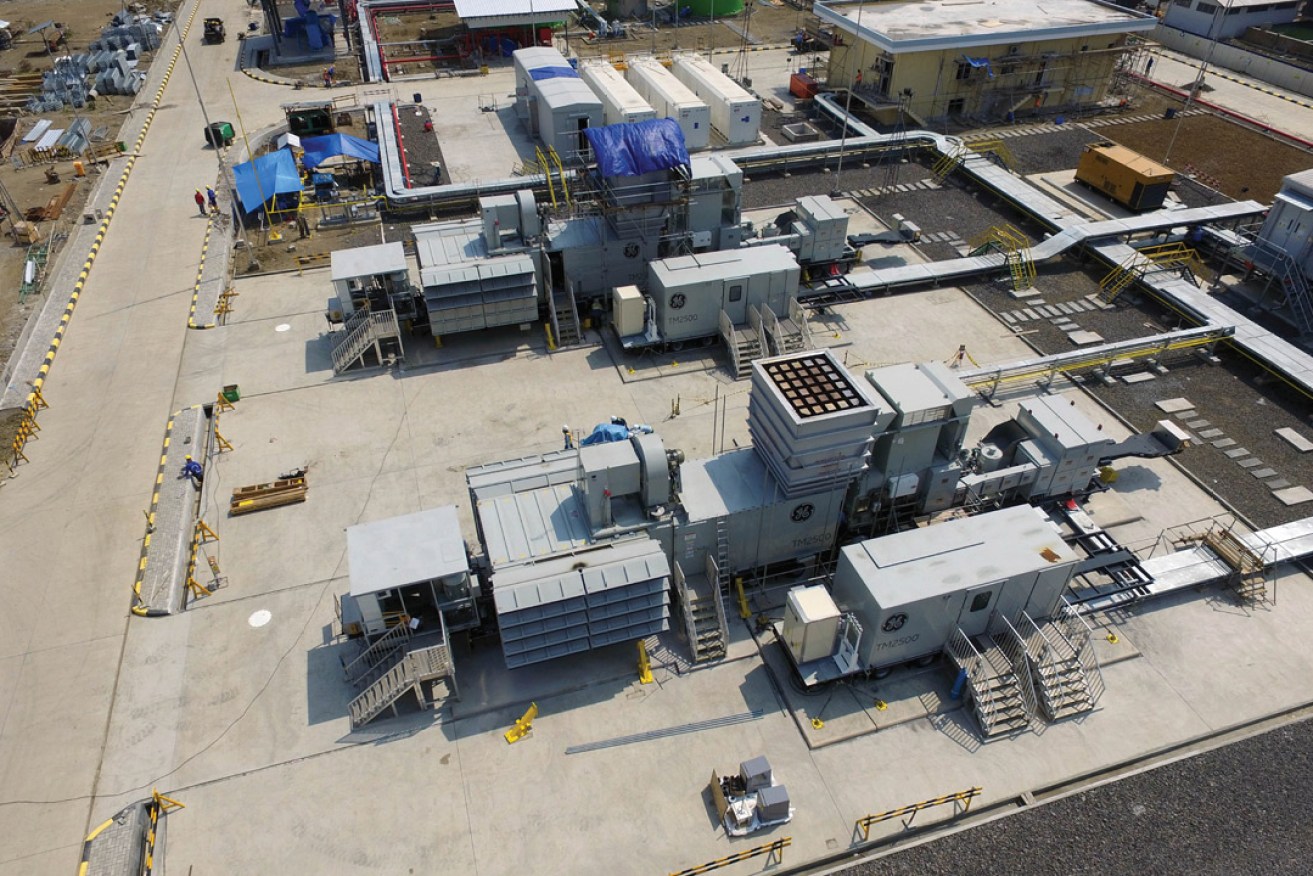Leasing out state-owned diesel generators will push prices down: expert
Leasing South Australia’s state-owned diesel generators to two private companies is likely to put downward pressure on electricity prices, an independent energy expert says.


A power plant using GE TM2500 hybrid turbine generators. Image: supplied
The Marshall Government this morning announced it had signed agreements to lease the state’s nine diesel generators to Nexif Energy and Infigen Energy.
The government says the deals will earn taxpayers $219 million and avoid $267 million in relocation, conversion and maintenance costs over the next 25 years.
The former Weatherill Government had leased and later bought the diesel generators for use in emergencies, in order to prevent a repeat of the 2016 state-wide blackout.
Experts have told InDaily the leases will mean more competition in the energy market at times when prices are high, and allow the companies to compete more effectively with their renewable generation assets.
Both Infigen – which claims to be Australia’s largest listed owner of wind power generation – and Nexif – a Singapore-based renewable and gas-fired power company – intend to convert the generators from diesel to natural gas.
The leases take effect in May next year.
Independent energy consultant Allan O’Neil told InDaily allowing the private generators to operate whenever the market demands it, rather than only when the state is at risk of blackouts, would put downward pressure on prices simply by increasing supply – albeit at times when the price of power is already relatively high.
“These (generators) were set up as emergency reserve plants … in future, effectively, that extra capacity is going to be available within the energy market” he said in a phone interview this morning.
“It’s added competition.
“All other things being equal, you would expect prices would be lower.”
O’Neil has been involved in Australia’s wholesale energy markets since their creation in the mid-1990s and now works as a consultant on wholesale, retail, electricity and gas issues.
Labor Energy spokesperson Tom Koutsantonis told reporters the leases were analogous to the sale of ETSA and would only increase the risk of blackouts and higher prices.
“South Australia is now at a heightened risk of blackouts and price increases because the government decision to break their promise and privatise our state-owned generators,” he told reporters at a press conference today.
“These generators were bought for the specific purpose of not being in the grid.
“(They were) to provide us with security – security when the privatised system fails us; security when the privatised generators don’t deliver the power that they promised they would.”
He said the companies would “operate in the interest of shareholders, rather than the citizens of this state – that means we’re at increased risk of blackout (and) higher prices”.
But Energy Minister Dan van Hols Pellekaan argued that “Labor’s original plan to restrict the use of the generators to emergency backup only was a shocking waste of taxpayers’ money”.
“The Marshall Government has recovered the majority of the money Labor committed and enabled the generators to operate 365 days of the year, instead of the once in two years under Labor’s plan,” he said in a statement.
“It’s time they were put to work for the benefit of South Australian families and businesses offering cheaper electricity all year long.”
O’Neil said Infigen and Nexif would have a clear economic incentive to turn the generators on during times when the wind is not blowing in South Australia.
“It isn’t going to be in their interests not to run these things,” he said, adding that the Australian Energy Market Operator also has the power to order plants to turn on in emergencies.
“The fact that these will be in private hands doesn’t prevent that.”
Infigen Chairman Len Gill said his company had operated renewable energy assets in South Australia since 2005 and that “our strategy is focused on providing commercial and industrial customers with reliable and competitively priced clean energy”.
Want to comment?
Send us an email, making it clear which story you’re commenting on and including your full name (required for publication) and phone number (only for verification purposes). Please put “Reader views” in the subject.
We’ll publish the best comments in a regular “Reader Views” post. Your comments can be brief, or we can accept up to 350 words, or thereabouts.
InDaily has changed the way we receive comments. Go here for an explanation.




